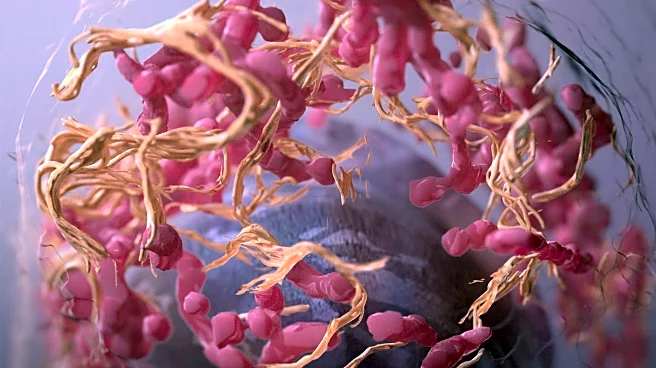What is the story about?
What's Happening?
Manufacturing engineers at the Mayo Clinic are playing a crucial role in the development of new biotherapies, particularly for diseases with limited treatment options. These engineers are involved in producing innovative medicines derived from human cells, blood, and genes. The Mayo Clinic's Center for Regenerative Biotherapeutics employs 40 manufacturing engineers across its Rochester and Florida locations. Their work includes the production of experimental therapies such as Chimeric Antigen Receptor (CAR-T) cell therapy for B-cell cancers and a cell-based vaccine for ovarian cancer. These therapies are manufactured in highly controlled laboratory settings known as clean rooms, which adhere to strict cleanliness and quality standards to ensure the safety and efficacy of the drugs. The engineers follow detailed standard operating procedures to transform discoveries into experimental medicines for clinical trials, working closely with quality control and assurance teams to meet regulatory standards.
Why It's Important?
The work of manufacturing engineers at the Mayo Clinic is significant as it represents a critical step in bringing cutting-edge biotherapies to patients who may have few other treatment options. By enabling the rapid development and testing of these therapies, the engineers help accelerate the timeline from discovery to clinical application. This is particularly important in the field of cancer treatment, where timely access to new therapies can significantly impact patient outcomes. The ability to manufacture these therapies on-site allows for quick troubleshooting and resolution of any issues, minimizing delays in getting treatments to patients. The success of these biotherapies could lead to broader availability and adoption, potentially transforming the landscape of cancer treatment and offering new hope to patients worldwide.
What's Next?
As manufacturing engineers continue to refine their processes and improve the efficiency of biotherapy production, the Mayo Clinic is likely to expand its capabilities and collaborations with industry partners. This could lead to the development of additional therapies for a wider range of diseases. The ongoing research and clinical trials will provide valuable data on the effectiveness and safety of these treatments, potentially paving the way for regulatory approval and commercialization. The success of these efforts could also inspire other institutions to invest in similar biomanufacturing capabilities, further advancing the field of regenerative medicine.
Beyond the Headlines
The development of biotherapies at the Mayo Clinic highlights the intersection of engineering and medicine, showcasing the importance of interdisciplinary collaboration in advancing healthcare. The rigorous standards and innovative techniques employed by the engineers underscore the ethical and regulatory challenges involved in biomanufacturing. As these therapies become more prevalent, there may be broader discussions about accessibility, cost, and the ethical implications of genetic and cell-based treatments. The work at the Mayo Clinic could serve as a model for other institutions looking to develop similar capabilities, potentially leading to a shift in how new therapies are developed and delivered.

















